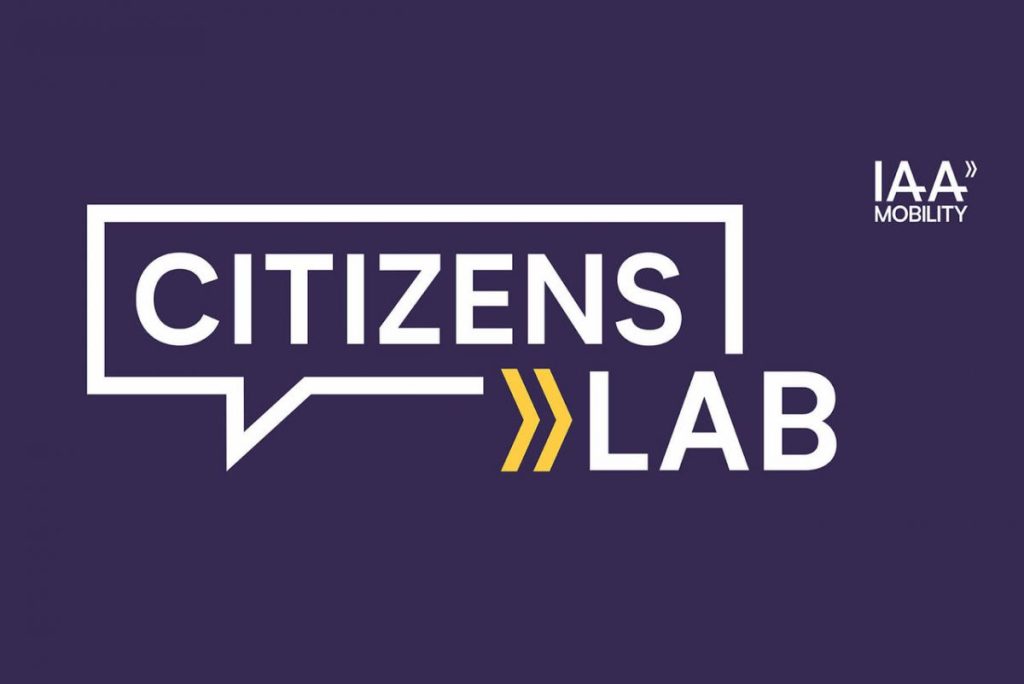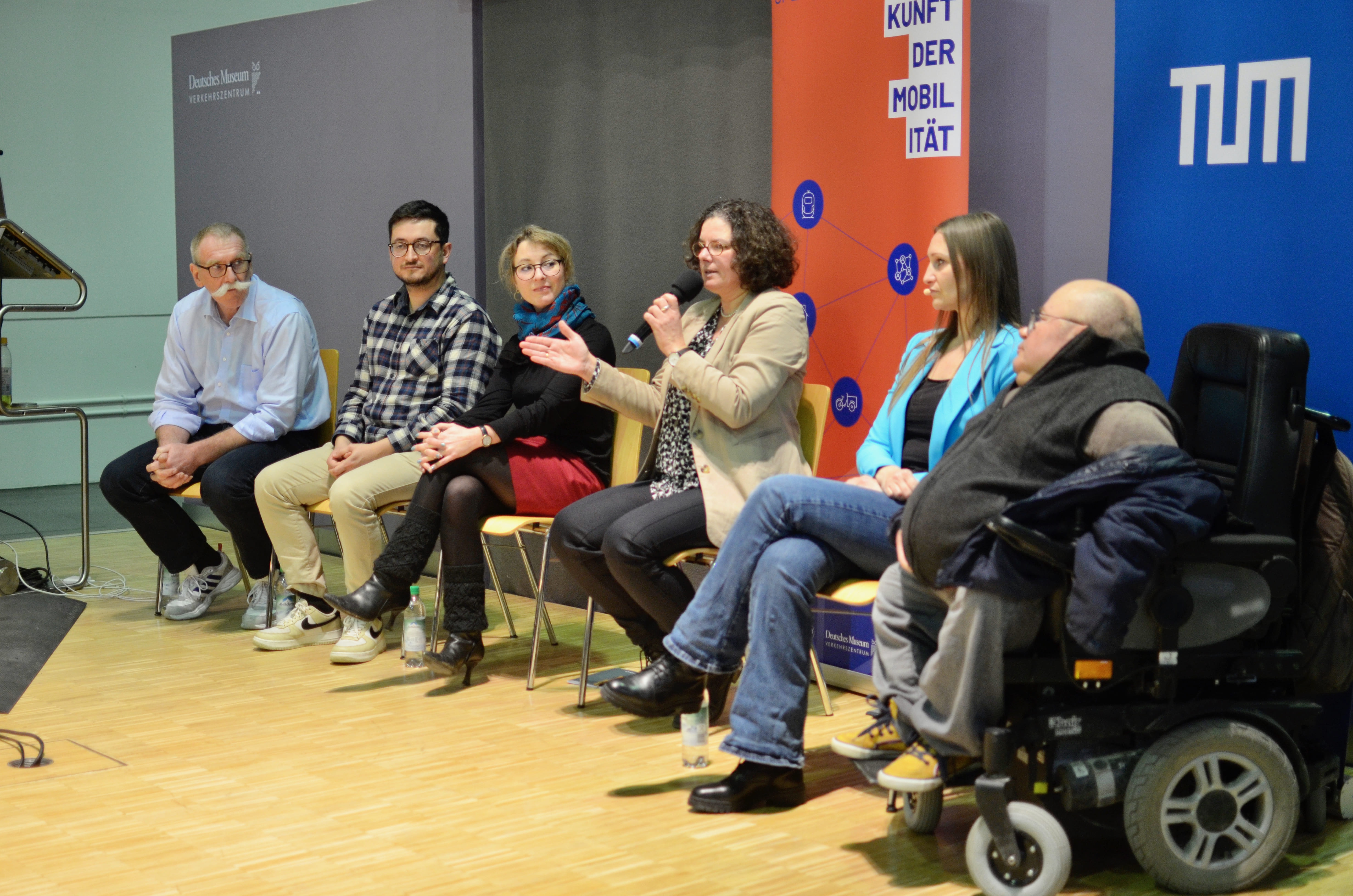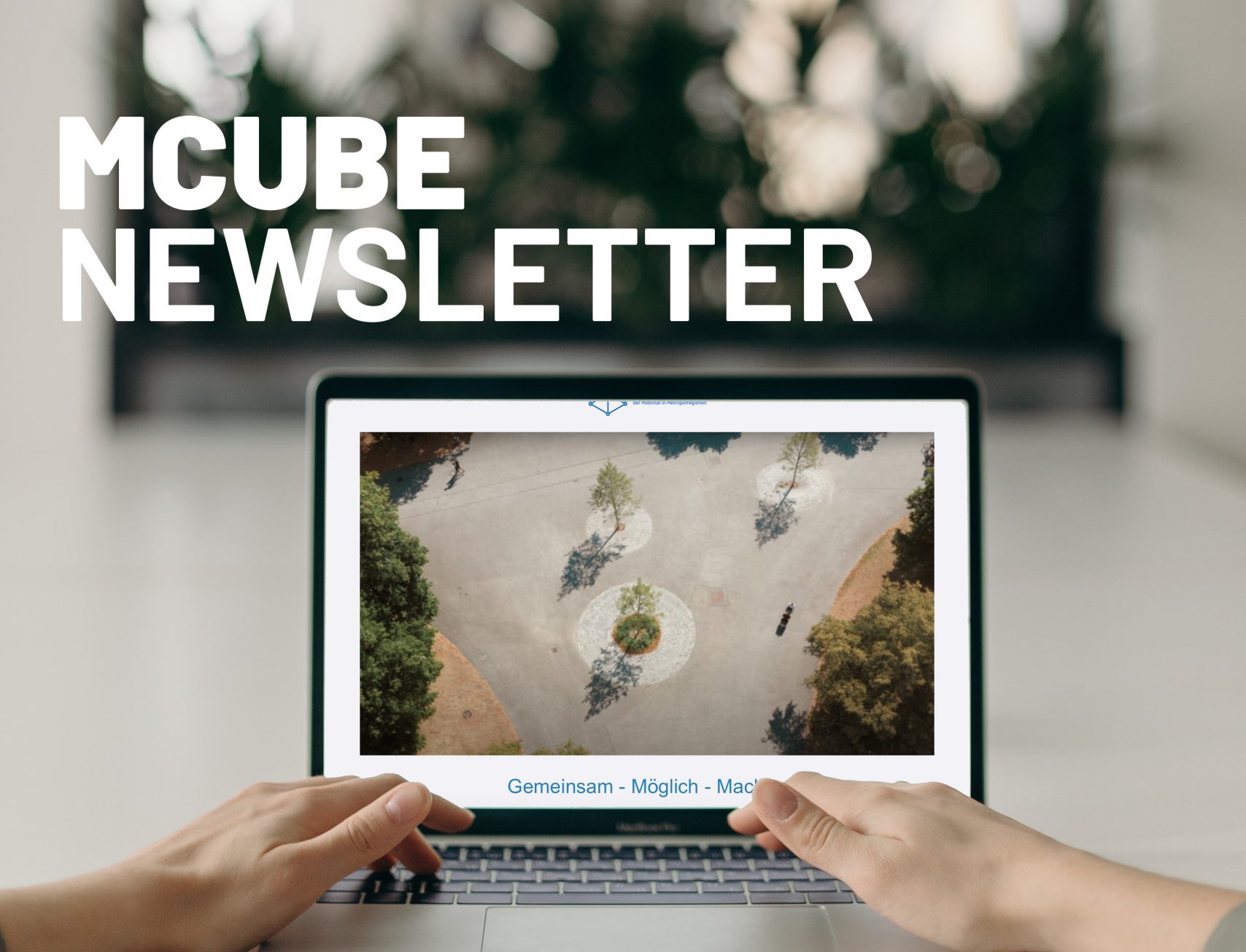Vom 07. bis 12. September 2021 repräsentierten Wissenschaftler:innen der Technischen Universität München (TUM) ihre Forschungsprojekte auf der IAA Mobility. Ganz im Sinne des Dreiklangs zwischen Wissenschaft, Wirtschaft und Gesellschaft war MCube dort Teil des “Citizens Lab” auf dem Marienplatz im Herzen Münchens. Ziel des „Citizens Lab“ war es, all diejenigen zusammen zu bringen, die Mobilitätsfragen der Zukunft gemeinsam erarbeiten, verstehen und mögliche Lösungsansätze entwickeln wollen.
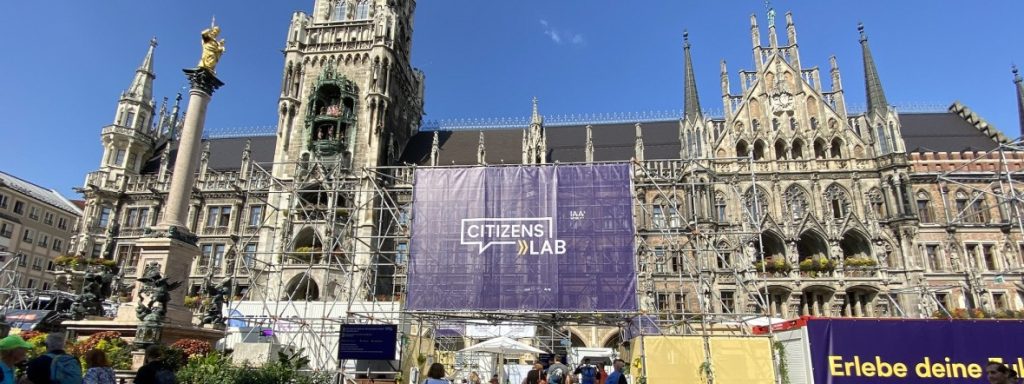
IAA Mobility erstmals in München
Mit dem Umzug von Frankfurt nach München präsentierte sich die IAA Mobility in diesem Jahr mit einem neuen Konzept. In den Messehallen Riem fanden über mehrere Tage hinweg Vorträge, Diskussionen und Präsentationen für die Fachwelt statt. Parallel wurden in der Münchner Innenstadt Informationsräume aufgebaut, die sich als “Open Spaces” an interessierte Bürger:innen wenden. Das Ziel: neue Mobilitätskonzepte für die Öffentlichkeit frei zugänglich zu machen, die neuen Ideen und Konzepte testen und in einen regen Austausch treten.
Insgesamt wurden an allen Veranstaltungsorten mehr als 400.000 Besucher:innen gezählt. Die neben dem Messegelände auch eingebundenen “Open Spaces” in der Stadt, und somit auch das “Citizens Lab”, waren sehr gut besucht. Neben Austeller:innen wie EIT Urban Mobility, HÜRO Mobility, oder dem Seniorenbeirat der Landeshauptstadt München, durfte auch MCube dort nicht fehlen.
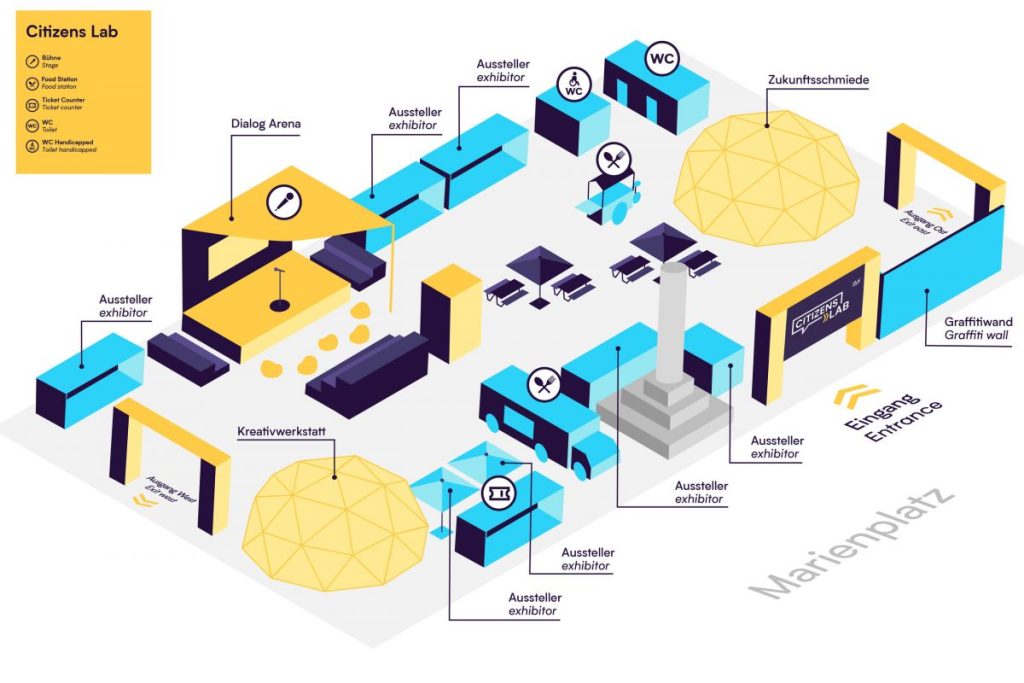
TUM: Gebündelte Mobilitätskompetenz als Teil des Citizens Lab
Insbesondere mit dem Ausbau der Plattform TUM.Mobility bündelt die TUM Forschung verschiedener Lehrstühle, die sich mit Innovation im Bereich Mobilität beschäftigen. Neben MCube war daher in dem TUM-Bereich des „Citizens Lab“ beispielsweise ein Fahrradsimulator des Lehrstuhls für Verkehrstechnik aufgebaut, durch den Besucher:innen das neue Kollisionswarnsystem auf einer Fahrt durch eine virtuelle Stadt testen konnten. Am Stand der TUM gab es außerdem Einblick in Projekte wie Providentia++, das sich mit dem Thema autonomes Fahren beschäftigt, oder das Hyperloop-Projekt der Fakultät für Luftfahrt, Raumfahrt und Geodäsie, das an klimaneutralen, bodengebundenen Verkehrsmitteln zur ultraschnellen Verbindung von Mobilitätszentren forscht.
Teilnehmende des MCube-Studierendenprojekts „euMOVE – European Mobility Venture“ präsentierten zudem einen Teil ihrer Forschungsergebnisse in der Dialog Arena, die ebenfalls Teil des „Citizens Lab“ war. Die Präsentation folgte dem Prinzip des Pecha Kucha, bei dem 20 aufeinenaderfolgende Bilder den Vortrag strukturieren, von denen aber keines länger als 20 Sekunden zu sehen ist.
In Dialogen, Präsentationen, Vorführungen und umfangreichen Informationsmaterialien wurden hier allgemeine und individuellen Fragen, Ideen und Anliegen der Zivilbevölkerung thematisiert. Mittendrinnen: MCube als ein regionales Netzwerk an Akteur:innen aus Wissenschaft, Wirtschaft und Gesellschaft. Das interdisziplinäre Team an Forscher:innen informierte am Stand über den Start des Zukunftsclusters und tauschte sich mit den Besucher:innen über die brennenden Fragen und Herausforderungen im Mobilitätssektor aus. Zentrale Themen am TUM-Stand im „Citizens Lab“ – wie Nachhaltigkeit, soziale Gerechtigkeit und ethische Fragen rund um die Automatisierung – zeigten deutlich, dass der Weg spannend wird und partizipativ gestaltet werden muss.
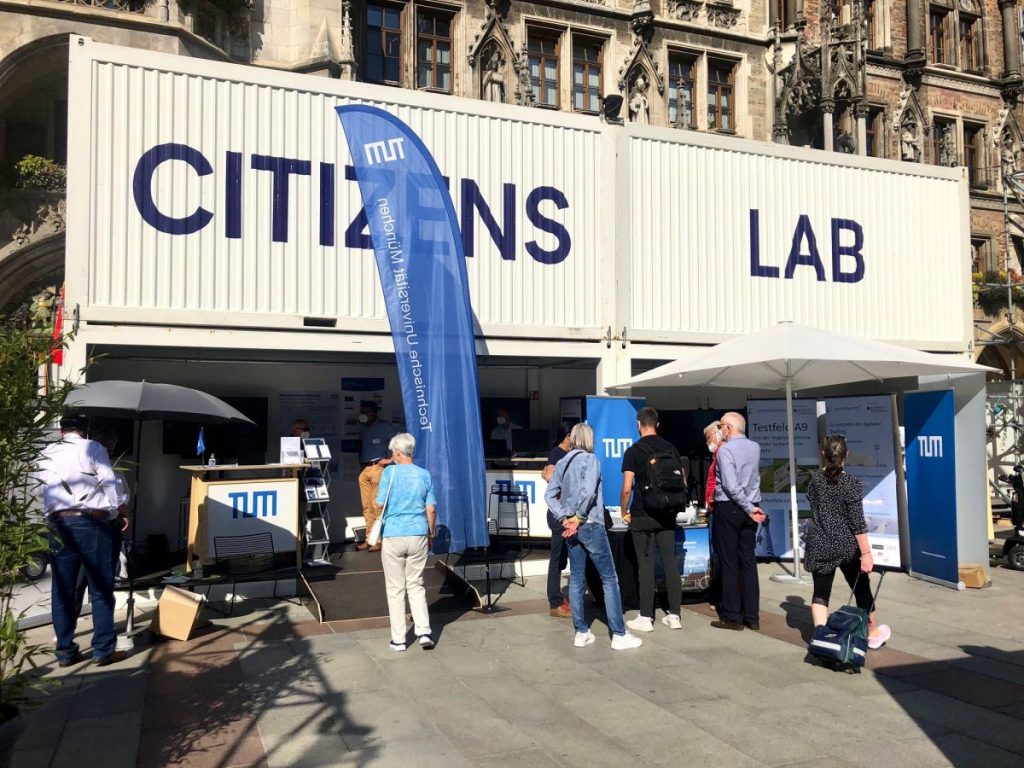
MCube @IAA Mobility in den Medien
Auch die Presse greifte die Präsenz von MCube auf der IAA Mobility auf. Mitglieder des MCube-Konsortiums waren dabei gleich zwei Mal vertreten: In einem Beitrag vom 6. September 2021 des ZDF heute JOURNAL erklärt Professor Gebhard Wulfhorst als Leitung des Lehrstuhls für Siedlungsstruktur und Verkehrsplanung, dass er große Veränderungen in der Form, Antrieb und Nutzung des Autos erwarte. Dennoch betont er:
„Ich glaube, dass es auch wichtig ist, dass wir selbstständig in unseren eigenen Mobilitätsentscheidungen bleiben.“
Prof. Dr.-Ing. Gebhard Wulfhorst
Des Weiteren prognostiziert Professor Markus Lienkamp als Leitung des Lehrstuhls für Fahrzeugtechnik in einem Interview mit dem ZDF heute JOURNAL (7. September 2021) auf Basis der Forschungsergebnisse seines Teams:
„Mitte der 2020er werden Elektrofahrzeuge nicht mehr teurer sein als verbrennungsmotorisch betriebene Fahrzeuge.“
Prof. Dr.-Ing. Markus Lienkamp
